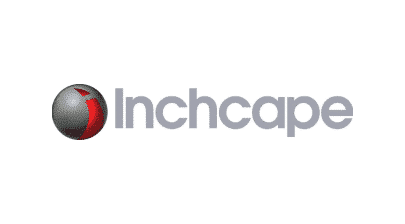Inchcape
Inchcape plc cuts end-to-end Salesforce testing time by 90% using Tricentis Tosca

Company overview
Inchcape plc is the global distribution and retail leader in the premium and luxury automotive sectors. Their extensive presence in international markets and the shifting landscape in the automotive industry led them to embark on a digital transformation project. The company engaged a partner, Idea Science, to build a comprehensive customer experience platform based on Salesforce.
 Industry: Retail
Industry: Retail Organization size: 15,000 employees
Organization size: 15,000 employees Location: Global
Location: Global Products:
Products:

Business challenges
To build, extend, and maintain this Salesforce platform, the Idea Science team follows a continuous agile product development process with a monthly release cycle. This cycle includes unit and functional testing as well as end-to-end business process testing. Because the platform features extensive cross-system integration and multi-business data flows, the end-to-end business process tests must span multiple systems, parties and technologies.
Within 6 months, the Idea Science team realized they had a problem. Testing was severely impacting their pace of development. Each monthly release required the execution of more than 500 regression test cases, and each new release typically added a further 50 test cases to the list. These tests were being executed manually, at an unsustainable cost of 10 person days per release–and this number was growing.
- Complex multi-cloud Salesforce implementation, spanning Classic and Lightning UIs and Service, Marketing, and Community clouds.
- Business processes spanning multiple systems, parties, and technologies
- Agile development process with monthly releases
- 500+ regression tests taking 10+ person days to execute manually each month, constraining developers ability to innovate
The Tricentis Solution: End-to-end test automation
The Idea Science team worked with Tricentis to design and deploy a suite of automated tests focused on validating Inchcape’s end-to-end business processes. They used Tosca’s Salesforce Scan feature to automatically generate code-free models of Inchcape’s Salesforce org, including UIs and API definitions. This model-based approach enabled business users to create scriptless automated end-to-end tests that can be used on both Salesforce Classic and Lightning interfaces.
After the initial design and configuration of key business scenario tests, the team now follows an “automate first” approach to testing. Because Tosca’s model-based approach makes it easy to reuse and extend existing test cases, new development features can be easily folded into existing business process tests rather than tested in isolation.
Key benefits:
- No development or scripting. Business users and testers can now manage their testing.
- Cross-platform coverage. Ability to test end-to-end business processes within and beyond Salesforce testing.
- Reusable library. Model-based test automation enables reuse and eliminates test case bloat.
- Salesforce Classic and Lightning with Marketing, Community, and Integration Cloud support.
Results
Predictably, getting the design and approach right took time – between 1 to 2 months – and was a critical part of successfully implementing Tosca. However, once the foundation was established and key business processes to be automated were identified, the velocity of the development team increased considerably.
Six months after their transformation to an automation-first approach to testing, the team was seeing amazing results.
In terms of the key objective, the Idea Science team completely removed their bottleneck of taking 10 days to manually execute 500 test cases. In addition, they were able to achieve a a 10x increase in the risk coverage of their tests. The same key business processes are now executed in a day and are run every sprint, accelerating the value and quality of updates to the Salesforce platform.